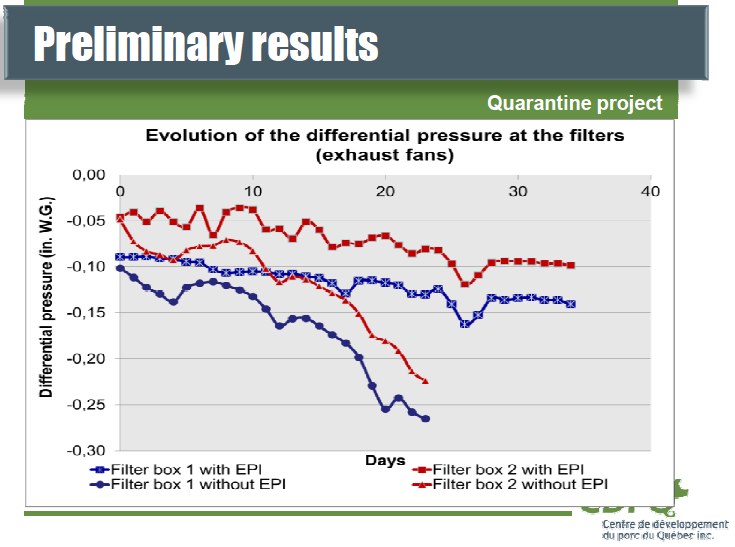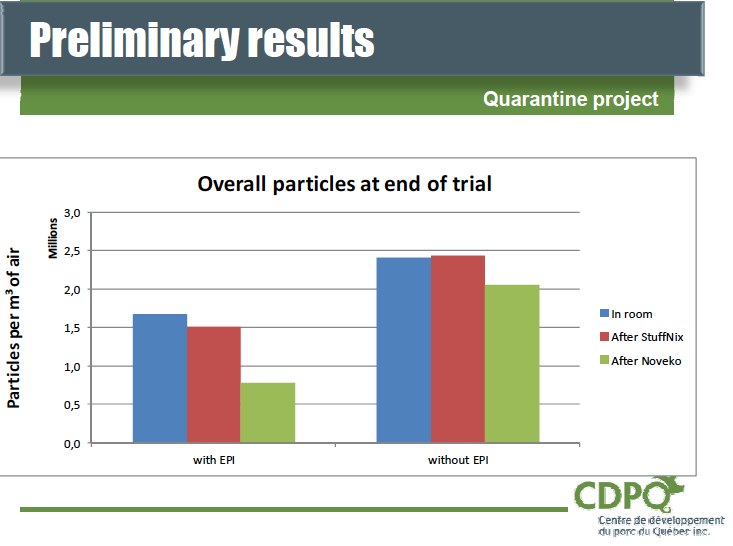A recent Quarantine Project in Canada is studying new ways that a bio-containment system could be adapted for a swine barn. The preliminary results of the study were presented by Francis Pouliot, Eng M.B.A of the CDPQ, at the Annual Canadian Swine Health Forum. The objective of the project was to quarantine infected gilts and prevent the spread of viruses into the atmosphere. In addition to making sure the viruses stay inside the quarantine room, they also studied how a new ventilation system could reduce the rate of clogging and maintenance of the filters, cutting cost to an affordable rate. Clogging and maintenance of the filters is the main problem with the concept of installing filtration equipment over the exhaust fan of a swine quarantine building. This innovative quarantine project used a combination of EPI Air® and filtration to achieve promising results (Read the project summary here).
One of the key challenges of this quarantine system is reducing the clogging rate of the filters at the exhaust fans, in an affordable, maintenance-reducing way. This is where the EPI (Electrostatic Particulate Ionization) Air System is used.
The Ionization System:
- The EPI Air System is used inside the building to reduce the concentration of dust in the ambient air.
- EPI Air’s effect significantly reduced the clogging rate and maintenance needs of filters.
The Filtration System:
- Cyclonic pre-filters and antimicrobial filters are installed in front of exhaust fans to prevent viruses from escaping quarantine. Additional filters are installed over air inlets to prevent PRRS virus or other airborne diseases from entering the quarantine room.
- The efficiency of the cyclonic pre-filters and the antimicrobial filters at blocking dust and microbial load are measured with and without using EPI Air.
The preliminary results of the quarantine project are very promising. Take a look at the charts below from Francis Pouliot’s CDPQ Presentation, to to see how EPI Air made a significant difference reducing the overall dust concentration in the room and how EPI Air extended the useful life of the filter box. We look forward to seeing the final results of this study.
A portion of this project funding was provided by the sector councils of Quebec, Ontario, Manitoba, and Saskatchewan who administer the Canadian Agricultural Adaption Program (CAAP) for Agriculture and Agri-Food Canada.
Read about how Manitoba, Canada is improving the air quality in swine barns.


